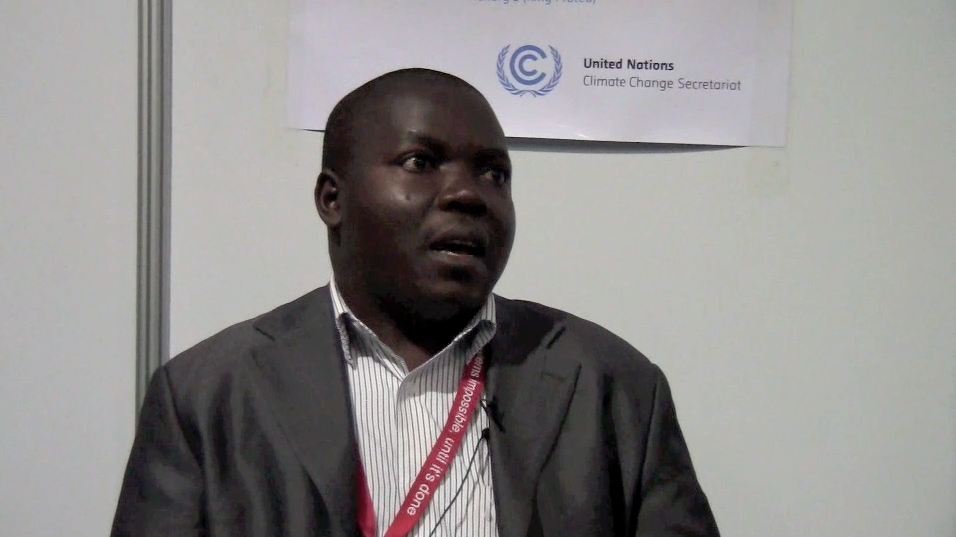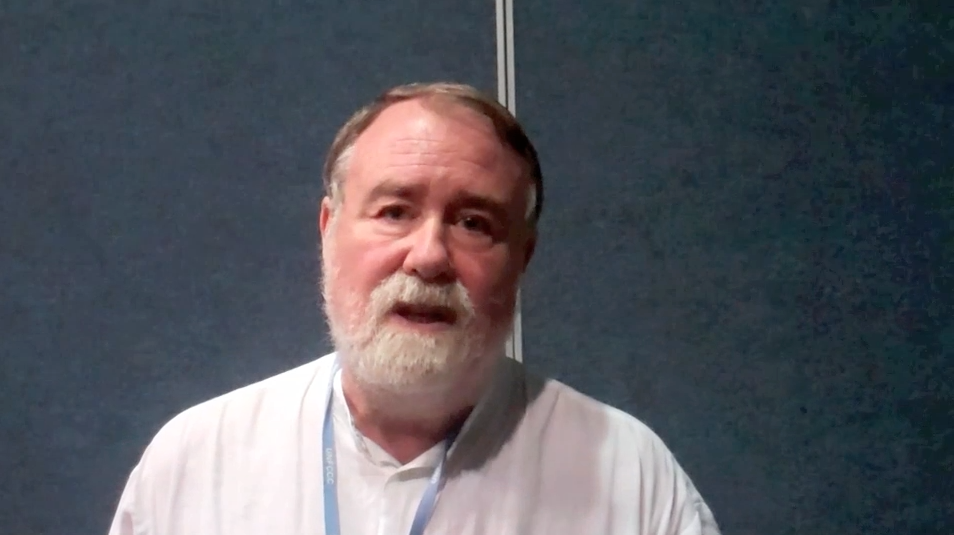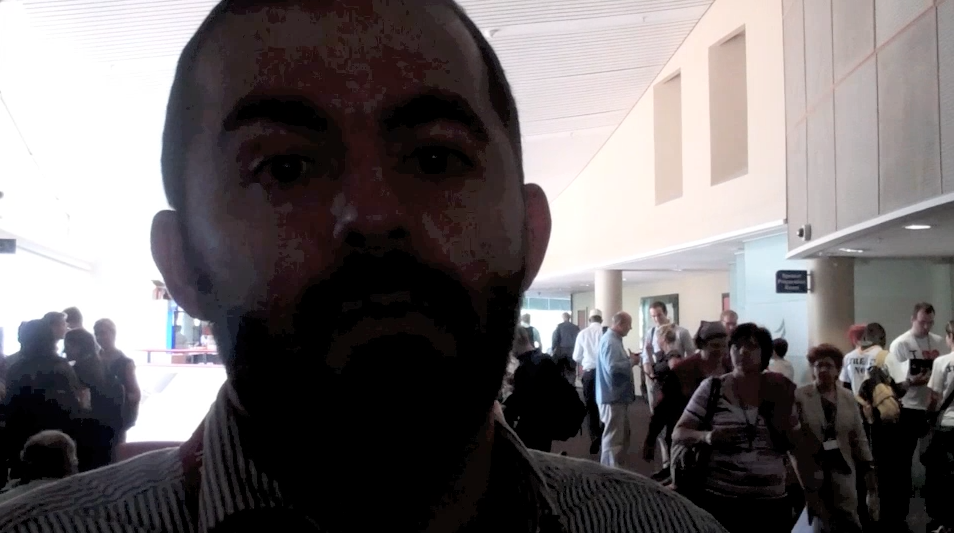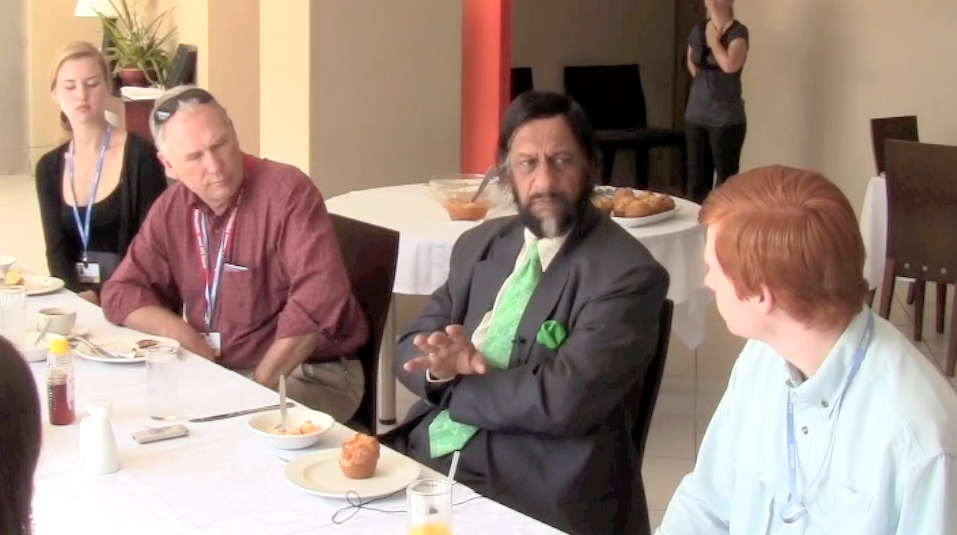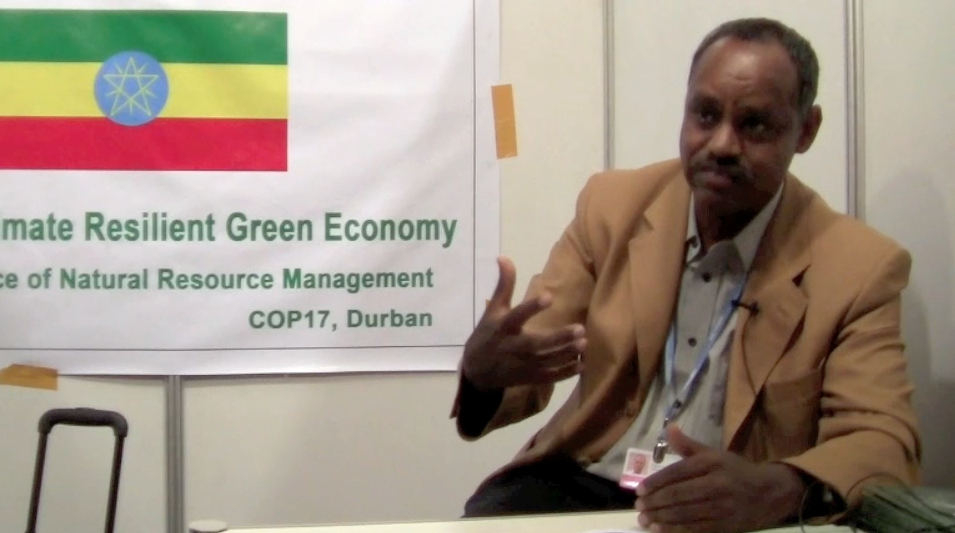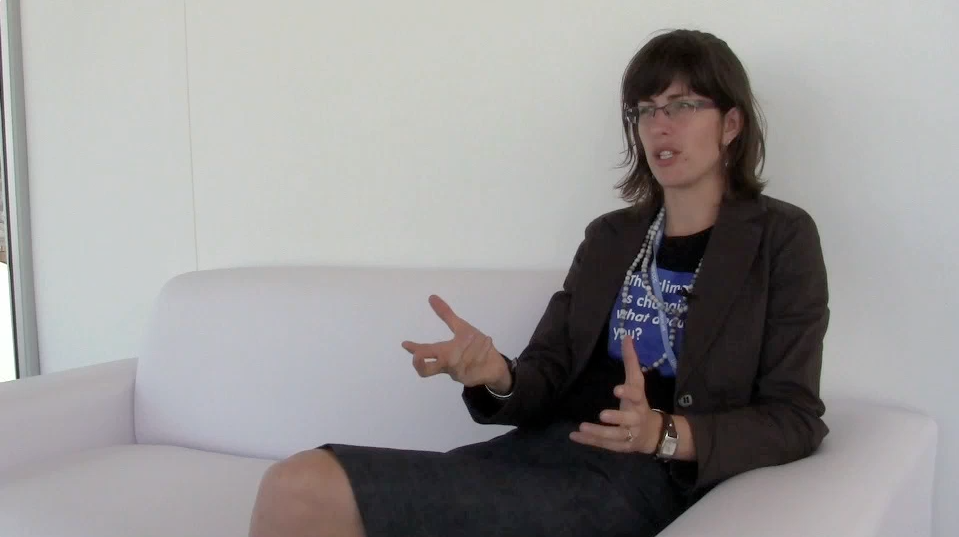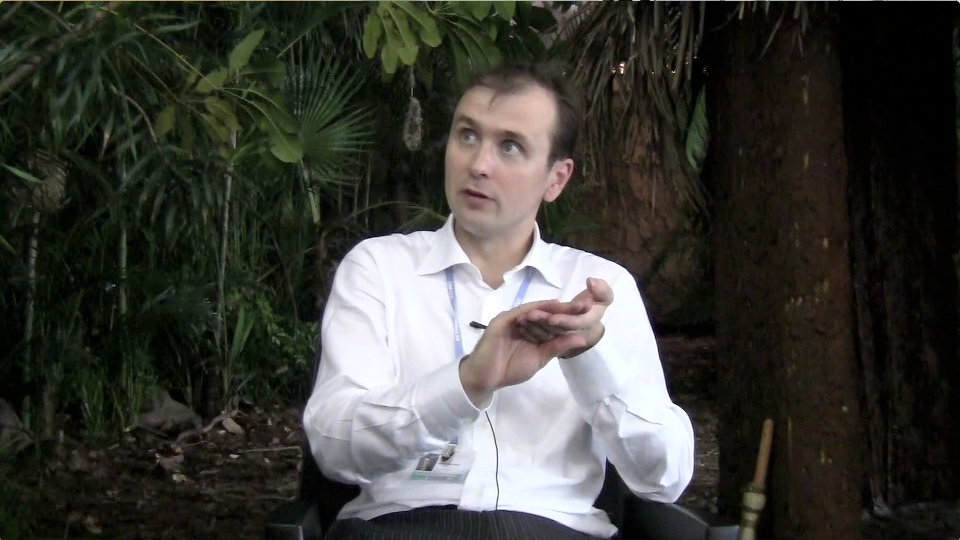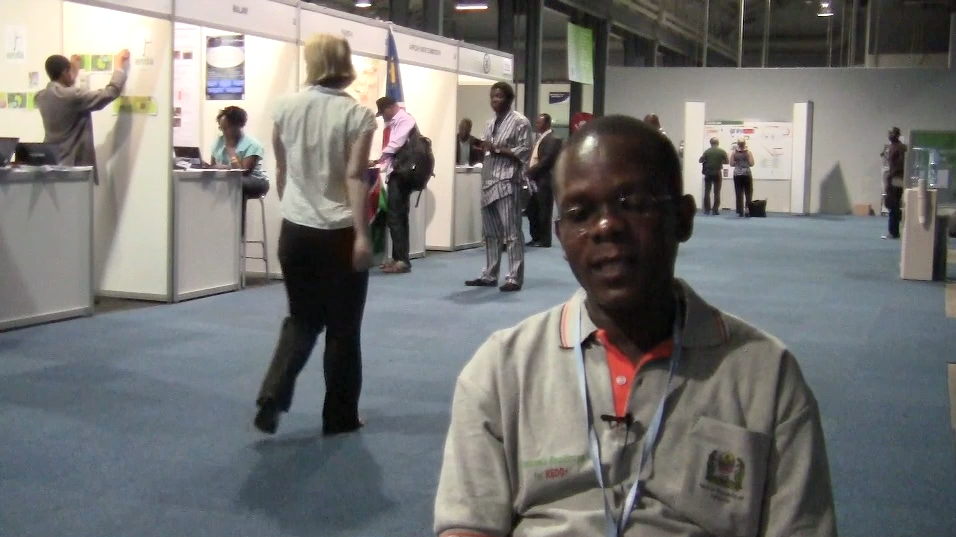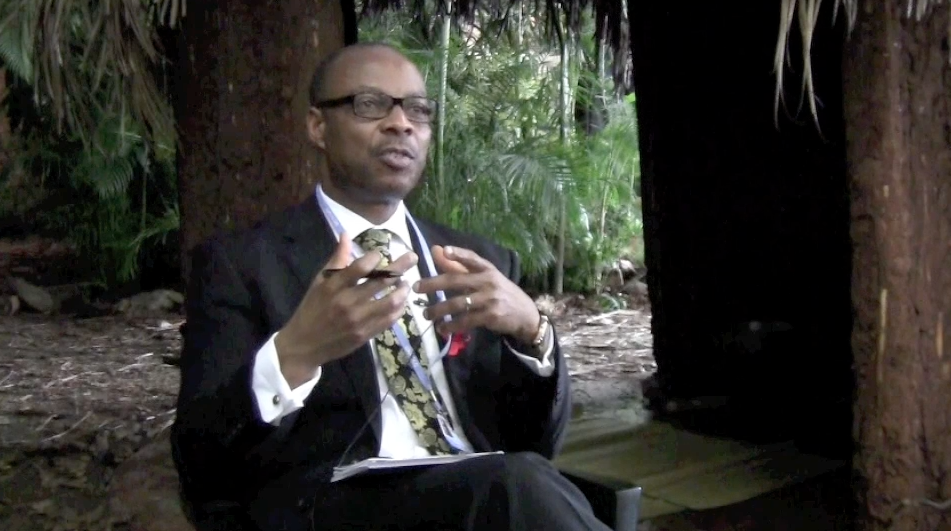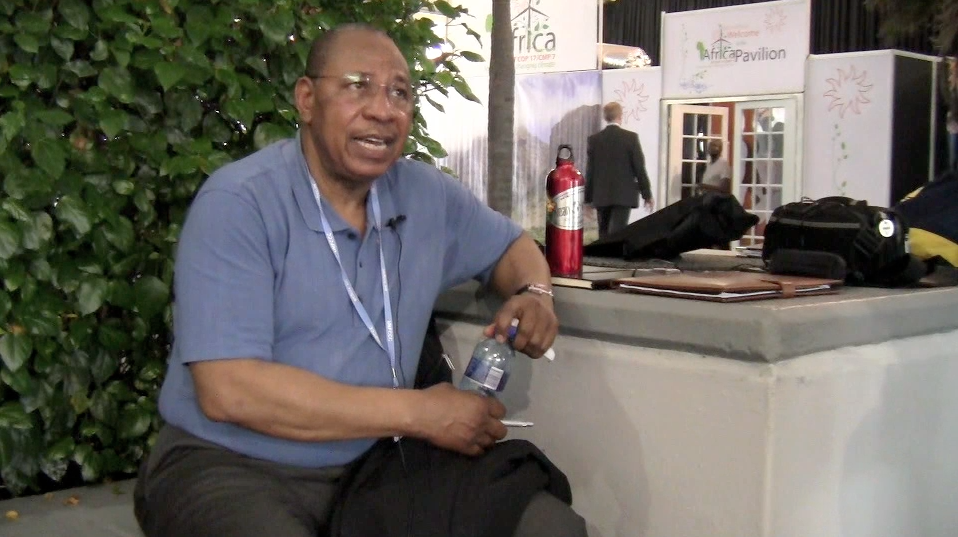Interviewed by Emily Bowie on December 9, 2012, COP 17, Durban, South Africa
Tag: finance
Interviewed by Elena Capaldi on December 7, 2011, COP 17, Durban, South Africa
David Turnbull, Director of CAN International, discusses the key issues of the climate negotiations, namely a second commitment of the Kyoto Protocol, long term cooperative action, and climate funding. He claims there is a more masked issue of ambition and calls for delegates to match policy with science. He believes that without a second period of the Kyoto Protocol there cannot be a good overall outcome at the conference. He then discusses USA ambition and calls for more action like the Tar sands protests of Fall 2011.
Interviewed by the Claire Tighe on December 7, 2011, COP 17, Durban, South Africa
Dr. Rajendra K. Pachauri, Chairperson for the Intergovernmental Panel on Climate Change, discusses how his expectations for COP17 in the areas of REDD, funding, and adaptation have not been met. He explains that if they were met it would mean significant progress for climate change, not necessarily major steps, but something to build on. He expresses a fear for the current level of confidence in the system.
Interviewed by the Dickinson Climate Mosaic on December 7, 2011, COP 17, Durban, South Africa
Dr. Rajendra K. Pachauri, Chairperson for the Intergovernmental Panel on Climate Change, discusses his views of the REDD+ initiative. He claims REDD is important but has a lot of measurement, monitoring and institutional problems.
Interviewed by the Dickinson Climate Mosaic on December 7, 2011, COP 17, Durban, South Africa
Mr. Negash Teklu from Ethiopia, Executive Director of Population, Health, Environment (PHE) Consortium Ethiopia and COP 17 Party Member to Ethiopia, discusses the activities of PHE-Ethiopia including pilot sites, social research and workshops. He then explains the sources and system of funding for the organization.
Interviewed by Emily Bowie on December 6, 2011, COP 17, Durban, South Africa
Ms. Anna Taylor of the African Center for Cities and the Stockholm Environment Institute discusses how funding for South Africa’s sustainable development needs to come from both internal and external sources. She voices the need to be wary of international money tied to international agendas.
Interviewed by Emily Bowie, Elena Capaldi and Maggie Rees on December 5, 2011, COP 17, Durban, South Africa
Mr. John Ward, Director of Vivideconomics, discusses the difference between the Adaptation Fund, the Green Climate Fund (GCF) and the Global Environment Facility (GEF), including purposes and sources. He explains the necessity for the GCF separate from the GEF and voices a prediction for the outcome of the conference concerning the GCF.
Interviewed by Emily Bowie on December 1, 2011, COP 17, Durban, South Africa
Mr. Charles K. Meshack, Executive Director at Tanzania Forest Conservation Group, discusses Tanzania’s postion in the COP 17 negotiations. He says the country wants to call attention to issues other than REDD that are further behind in progress, including adaptation, technology transfer and financing. Tanzania is pushing for these initiatives because climate change in the country is real and rural people are already seeing the effects. Ultimately, the country is looking for technology and capacity building to develop sustainably and decrease climate vulnerability.
Interviewed by Anna McGinn and Samuel Pollan on December 1, 2011, COP 17, Durban, South Africa
Mr. Charles K. Meshack, Executive Director at Tanzania Forest Conservation Group, discusses the structure and goals of REDD+ in Tanzania and the social impacts of the program, including monetary issues. He also discusses the relationship between REDD+ and local communities and counters the common perception that REDD+ is designed to take resources away from local people.
Interviewed by Anna McGinn and Samuel Pollan on December 1, 2011, COP 17, Durban, South Africa
Dr. Tony Nyong, Principle Climate Change Expert at the African Development Bank, discusses how local communities have been adapting to climate forever, but that adaptation to anthropogenic climate changes needs to come from a variety of sources. More specifically, he emphasizes that different planning efforts for adaptation are done at different levels and therefore funding has to come from a variety of places including local, national and international sources. He also talks about the role adaptation is playing at COP 17.
Interviewed by Esther Babson, Emily Bowie, Christine Burns, and Maggie Rees on December 1, 2011, COP 17, Durban, South Africa
Dr. Saleemul Huq, Senior Fellow at the International Institute for Environment and Development Climate Change Group, explains the Green Climate Fund and its history as well as its future in the current conference and beyond.
Interviewed by Esther Babson, Anna McGinn, Maggie Rees and Claire Tighe on November 30, 2011, COP 17, Durban, South Africa
Dr. Youba Sokona of Ethiopia, the coordinator of the African Climate Policy Centre (ACPC) based in the UN Economic Commission for Africa, discusses the need for a new global paradigm. He also explains the opportunity Africa faces to embark of “jump-start” sustainable development due to the primary stages of development the continent is currently in. He names the four biggest barriers to this solution: political will, institutions, finance and short-term focus. He then provides examples for how each of these barriers can be broken.
Interviewed by Elena Capaldi, Maggie Rees and Emily Bowie on November 30, 2011, COP 17, Durban, South Africa
Mr. Abias Huongo of the Angola delegation, founder and president of Angola’s biggest environmental organization Juventude Ecologica d’ Angola, discusses Angola’s interest in a second commitment of the Kyoto Protocol, long term finance, capacity building and technology transfer. He points out other countries that have similar and differing perspectives from Angola’s.
Interviewed by Esther Babson and Christine Burns on November 29, 2011, COP 17,
